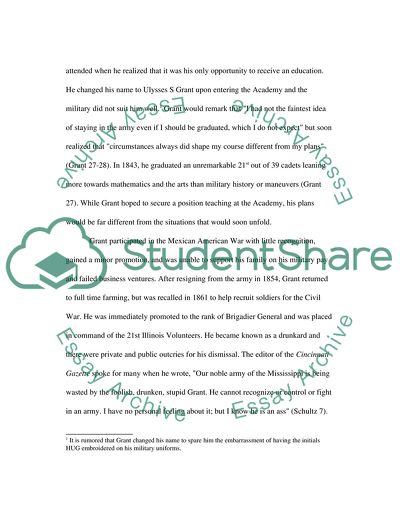Cite this document
(Ulysses S Grant Case Study Example | Topics and Well Written Essays - 1500 words, n.d.)
Ulysses S Grant Case Study Example | Topics and Well Written Essays - 1500 words. https://studentshare.org/history/1719780-ulysses-s-grant
Ulysses S Grant Case Study Example | Topics and Well Written Essays - 1500 words. https://studentshare.org/history/1719780-ulysses-s-grant
(Ulysses S Grant Case Study Example | Topics and Well Written Essays - 1500 Words)
Ulysses S Grant Case Study Example | Topics and Well Written Essays - 1500 Words. https://studentshare.org/history/1719780-ulysses-s-grant.
Ulysses S Grant Case Study Example | Topics and Well Written Essays - 1500 Words. https://studentshare.org/history/1719780-ulysses-s-grant.
“Ulysses S Grant Case Study Example | Topics and Well Written Essays - 1500 Words”. https://studentshare.org/history/1719780-ulysses-s-grant.


